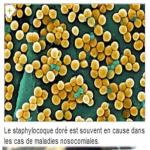Role of cholesterol
Importance of cholesterol
We cannot avoid cholesterol because it is in everything (animal kingdom and plant kingdom). It is valuable for our well-being when not in excess. It is present in all cells, the liver produces it. But in excess, it is responsible for many cardiovascular diseases, atherosclerosis, thrombosis, gallstones and kidney stones, premature aging of the arteries, etc. Prevention is in the way we eat and not in drugs, If you always eat fat (fatty meats, egg yolks, organ meats, cold cuts, etc.), remember that you increase your cholesterol level and two people out of five are like you and have too high a cholesterol level. Excess cholesterol is highly injurious as excess in anything is injurious. The food we eat becomes a slow and sure poison if we don't follow the rules of moderation. Honey, for example, is good for your health, but as soon as you abuse it, your throat is irritated and you vomit. It is common to see people have diarrhea or vomit following an overeating or a bad food combination.
God created everything good for a purpose, and it is man who turns God's natural goodness into poison. God has done nothing that is useless; In effect :
--Cholesterol is the essential constituent of our cells. It is the fundamental component of cell membranes: a large part of cholesterol is in fact used to build the lipid layer of plasma membranes. It also has a role in the fluidity of membranes. There is no plant or animal cell without sterol or cholesterol.
--Cholesterol is used by our body to manufacture many substances: steroid hormones (cortisol, cortisone, and aldosterone), sex steroid hormones (progesterone, estrogen, and testosterone), cholecalciferol (vitamin D3), bile salts, etc. Moreover, it is the essential constituent of bile. Cholesterol is present in most body fluids.
-It is a major component of animal cell membranes which contributes to their stability and to the maintenance of their structures by intercalating between the phospholipids (forming the bilayer of the membrane).
-It stiffens the membrane because it prevents its gelation by avoiding the crystallization of fatty acids, and reduces membrane permeability to water-soluble molecules.
-It has a role of “thermal buffer”: at 37°, it limits the movement of phospholipids, therefore the membrane fluidity decreases; at lower temperatures, it prevents the clumping of phospholipids.
- In the membrane, it allows the formation of lipid rafts, an essential zone for the anchoring of functional proteins.
-In neurons, it allows the synthesis of neurotransmitters by exocytosis and therefore the propagation of nerve impulses.
NB: Cholesterol is very precious for our body and we must be wary only of animal fats which are too rich in saturated fatty substances.
Add a comment








